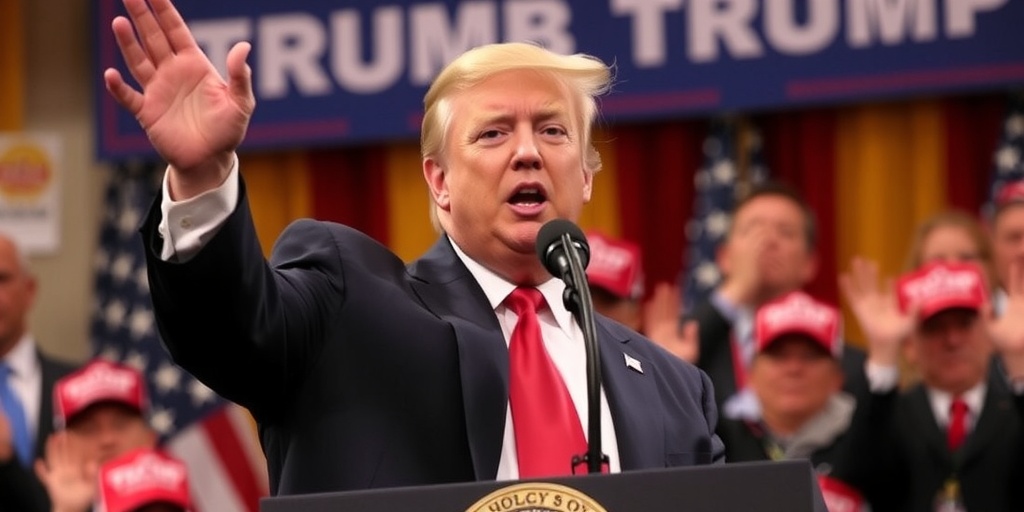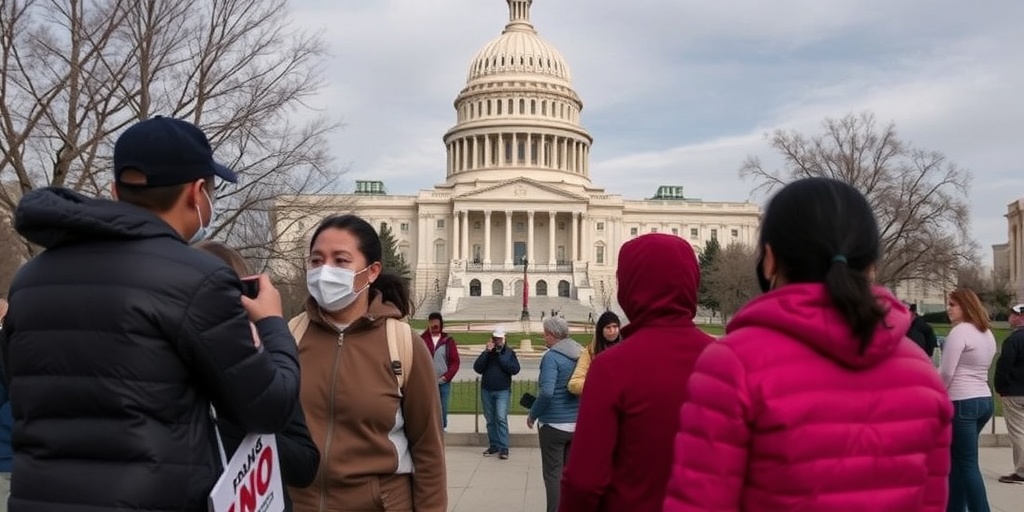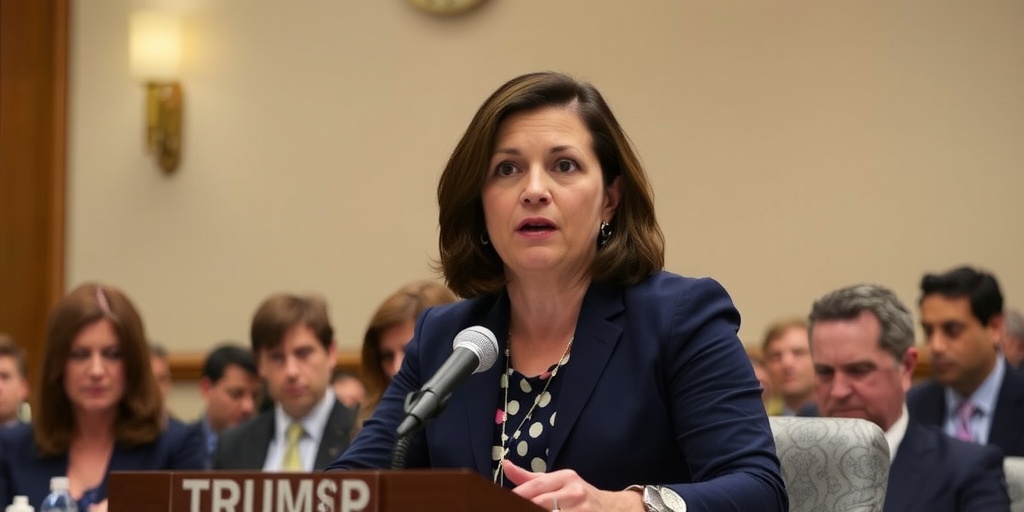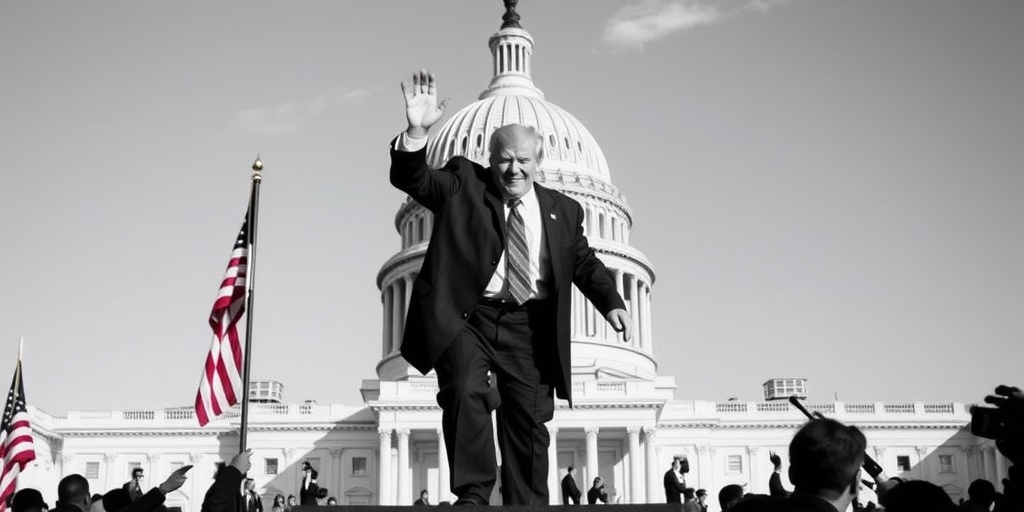Now Reading: Trump’s Tariff Reversal Eases GOP Concerns, But Uncertainties Remain
-
01
Trump’s Tariff Reversal Eases GOP Concerns, But Uncertainties Remain
Trump’s Tariff Reversal Eases GOP Concerns, But Uncertainties Remain
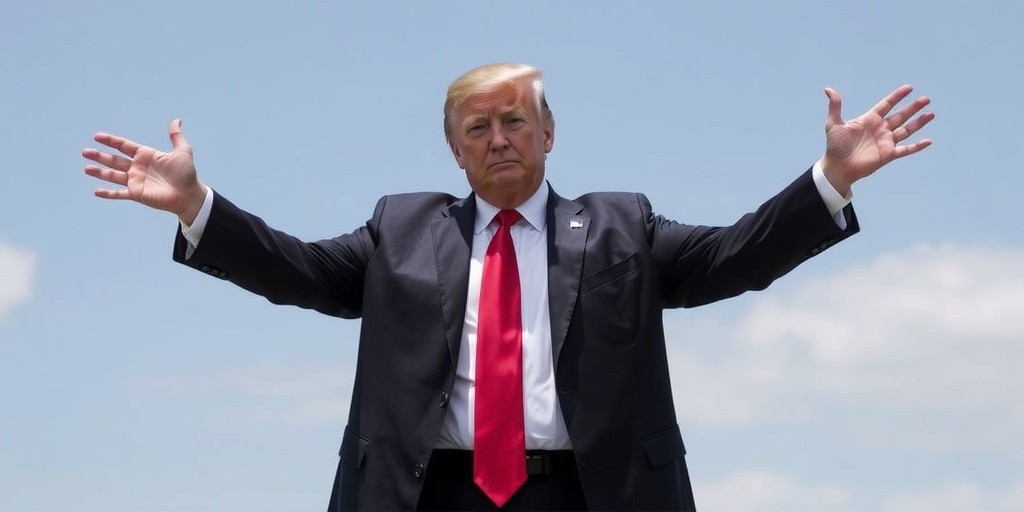
Title: Bipartisan Concerns Emerge Over Trump’s Tariff Policy as Republicans Balance Support and Criticism
President Donald Trump’s shifting stance on tariffs has ignited bipartisan unease among legislators in Washington, D.C. While Democrats express outrage over the president’s approach, many Republicans find themselves navigating a complex political landscape. Torn between their traditional aversion to tariffs and the desire not to openly criticize Trump, GOP members are exhibiting signs of unease regarding the impact of his trade decisions on the economy.
In an unexpected turn, President Trump announced on a recent Wednesday that he would suspend most of his reciprocal tariffs for a period of 90 days—an abrupt pivot just one week after their introduction. This announcement assuaged some immediate concerns among Republican lawmakers, many of whom praised Trump for what they described as masterful negotiation tactics. However, beneath the surface, a palpable anxiety permeates the ranks of Republican lawmakers, who are feeling pressure from constituents and donors alarmed by the fallout from Trump’s trade policies on financial markets and overall economic stability.
A handful of Republican senators has begun to put their names behind proposed legislation aimed at either eliminating the tariffs entirely or restoring Congress’s authority to oversee the imposition of such trade levies moving forward. Senator Thom Tillis from North Carolina articulated his frustration during a recent Senate hearing, stating, “I’m just trying to figure out whose throat I get to choke if it’s wrong.” His comments reflected the deep divide and uncertainty surrounding the tariff policy.
Even after Trump’s 90-day tariff pause, concerns persist. Senator Tillis expressed ongoing anxiety over Trump’s approach, suggesting the recent tariff adjustments might reduce immediate market escalation but emphasized the need for clarity to avert further economic turbulence. He urged the necessity of reaching a trade agreement soon to eliminate uncertainty from the marketplace.
Senator Rand Paul of Kentucky, known for his vocal opposition to Trump’s tariff measures, cautiously welcomed the president’s change in direction, hoping it indicated a shift toward more reasonable policies. Paul further noted that tariffs, perceived as detrimental to economic health, have enormous implications, stating, “When you add a bunch of tariffs, you’ll lose $6 trillion in the marketplace.”
Despite his criticisms, Paul has joined forces with Democrats to support resolutions aimed at repealing Trump’s tariffs, including a recent measure that successfully passed in the Senate, targeting tariffs imposed on Canada. While a minority of Republicans has aligned against the tariffs, Republican House leaders are reportedly taking steps to avoid confronting these issues directly, indicating an awareness that any vote could present significant political risk by alienating either the White House or their constituents.
In light of the recent tariff pause, many Republicans have voiced their support for Trump’s latest strategy publicly. House Speaker Mike Johnson applauded the president’s ability to leverage negotiations with other countries, suggesting that Trump’s approach would ultimately be beneficial for American workers and manufacturers.
Despite this endorsement, there remains a degree of skepticism throughout the GOP. Senators have conveyed frustration over the administration’s lack of a clearly articulated strategy concerning tariffs, specifically regarding their duration and long-term repercussions. Senator James Lankford from Oklahoma expressed the desire for a specific timeline, noting that his constituents are appreciative of efforts to address the trade deficit but are also keen for clarity on eventual outcomes.
The skepticism highlights a broader disconnect between Trump’s approach and the longstanding pro-free trade beliefs maintained by many Republican lawmakers. Senator Ted Cruz of Texas, while expressing support for Trump, has reiterated that tariffs act as a tax primarily impacting American consumers, further complicating Republican attitudes toward the administration’s trade policies.
In a notable move, Senator Charles Grassley from Iowa introduced legislation, co-sponsored by Senator Maria Cantwell, Democrat from Washington, that would necessitate the president to provide Congress with 48 hours’ notice before imposing any new tariffs. This proposal stipulates that Congress would need to approve such tariffs within 60 days, or they would be automatically rescinded, signaling a growing discontent within Republican circles.
Against this backdrop, Trump’s frequent adjustments to tariff policy continue to elicit mixed reactions from his party. Many Republicans are cautious, recognizing that the intricacies of global trade require careful navigation. Senator John Thune, the GOP’s majority leader, articulated these concerns, pointing out the uncertainty surrounding economic impacts while expressing hope for Trump’s success in achieving beneficial reciprocity from international trade partners.
Overall, while some Republicans may publicly rally behind Trump’s recent tariff pause, essential disagreements persist within the party regarding the long-term viability and impact of his trade policies. As uncertainty lingers, the possibility of Congress reclaiming trade authority remains dim under the current administration, leaving many lawmakers hopeful yet apprehensive about the future of U.S. trade relations.
Stay Informed With the Latest & Most Important News
Previous Post
Next Post
-
 01New technology breakthrough has everyone talking right now
01New technology breakthrough has everyone talking right now -
 02Unbelievable life hack everyone needs to try today
02Unbelievable life hack everyone needs to try today -
 03Fascinating discovery found buried deep beneath the ocean
03Fascinating discovery found buried deep beneath the ocean -
 04Man invents genius device that solves everyday problems
04Man invents genius device that solves everyday problems -
 05Shocking discovery that changes what we know forever
05Shocking discovery that changes what we know forever -
 06Internet goes wild over celebrity’s unexpected fashion choice
06Internet goes wild over celebrity’s unexpected fashion choice -
 07Rare animal sighting stuns scientists and wildlife lovers
07Rare animal sighting stuns scientists and wildlife lovers













